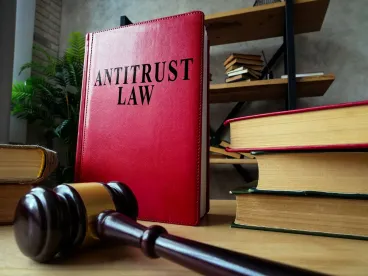On April 4, 2022, the U.S. Department of Justice’s Antitrust Division released updated guidance on its Leniency Program, which protects companies and employees who cooperate with the government from prosecution for their involvement in cartel activities. The detailed guidance, "Frequently Asked Questions About the Antitrust Division's Leniency Program" (FAQ), was accompanied by revised model leniency letters and the consolidation of the Leniency Policy in the Antitrust Division’s Chapter of the Justice Manual, 7-3.000 – Criminal Enforcement. The Antitrust Division also announced a new dedicated email address to make applying for leniency easier.
The recent changes are designed, at least in part, to make the Leniency Program more accessible to the business community and to explain more clearly how the Program works in practice. These changes also emphasize the high burden of cooperation for a leniency applicant, including requirements to provide support to related civil litigation.
Key Developments in the Updated FAQ
The FAQ clarified and offered new guidance on issues that have previously been the source of some uncertainty, such as:
-
The requirement that an applicant must promptly self-report the illegal activity. The FAQ encourages applicants to seek out a marker as soon as potential wrongdoing is discovered. Practically speaking, this means a company can conduct a preliminary investigation to confirm involvement in the illegal activity before self-reporting and still be eligible for leniency. However, waiting to self-report until the Division has opened an investigation would be grounds for exclusion from the program. Likewise, a company that becomes aware of a potential violation and fails to investigate the conduct further is ineligible for leniency. Lack of knowledge that the conduct could be criminal also does not excuse a company from meeting this requirement.
-
To receive a conditional leniency letter, an applicant must present a defined, conduct-specific restitution plan.
-
An applicant must implement appropriately tailored remedial measures to prevent recidivism. The FAQ offers several examples of measures that could — likely in combination — satisfy this requirement such as recognizing the seriousness of the illegal activity and taking full responsibility for it, enacting protocols to identify future risks, and disciplining or removing culpable and non-cooperating employees.
-
The Antitrust Criminal Penalty Enhancement and Reform Act of 2004 (ACPERA), made permanent by Congress in 2020, limits civil damages claims in private state or federal antitrust actions to single damages based on the qualifying leniency applicant’s own sales. The FAQ stresses that the purpose of ACPERA’s limitation is to incentivize self-reporting and to strengthen civil enforcement. However, to receive this benefit, an applicant must provide “satisfactory cooperation” to civil plaintiffs under 15 U.S.C. §7a-1(b). This includes providing a full account of all potentially relevant facts, documents, and witnesses known to the applicant. Whether an applicant’s cooperation is complete and timely is a decision made by a court — not the Antitrust Division. This has become a contentious issue in recent civil actions. The FAQ states that an applicant should not be disqualified from ACPERA benefits for failing to respond to a plaintiff’s unreasonable requests. An applicant is not required to provide information beyond the scope of, or not relevant to, the conspiracy identified in the leniency letter. But the FAQ also confirms that whether a request is reasonable is a fact-specific inquiry and there is no statutory deadline for the court to make this determination. The additional guidance, while helpful, highlights how difficult it can be for leniency applicants to navigate and timely resolve issues pertaining to their cooperation obligations in related civil actions.







 />i
/>i
